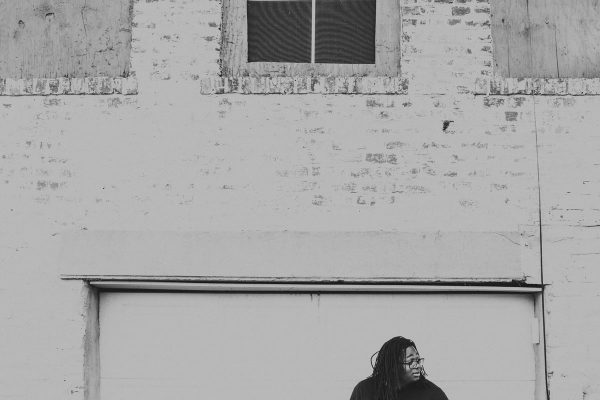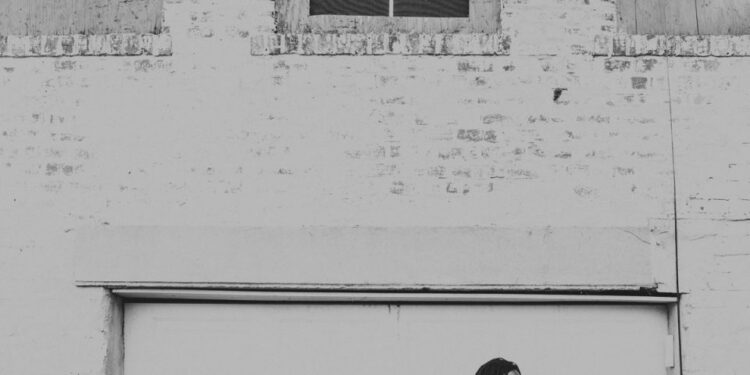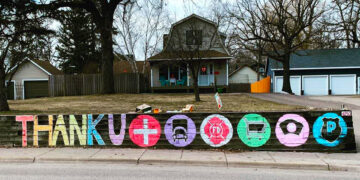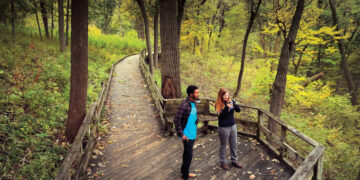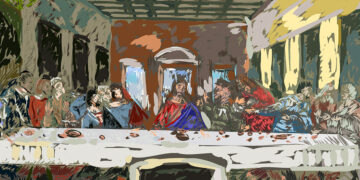Turned off the boob tube an’ let the needle drop, on some fly lo death to Fox News for Megyn Kelly sayin’ Jesus white yo. Now to who do society loathe, our judging niggas by the style of they clothes? That’s like gauging a man by the amount of his hoes.”r– Black Jonny Quest, untitled
Does anyone’s soul cry out for another song about Taylor Swift’s ex-boyfriends after that?
Maybe. Representing the world as one sees it is the job of every artist, but having something unique to say is certainly aided by a perspective unlike one’s peers.
Black Jonny Quest (BJQ, formally known as Alexander Elliott) is an Omaha rapper with roots on Ames Ave., in Raven Oaks, and out on his grandma’s apple orchard in Valley, Nebraska. His adoptive parents are white hippies who made a conscious effort to raise him and his two adopted sisters “to be black.” It made for interesting times growing up.
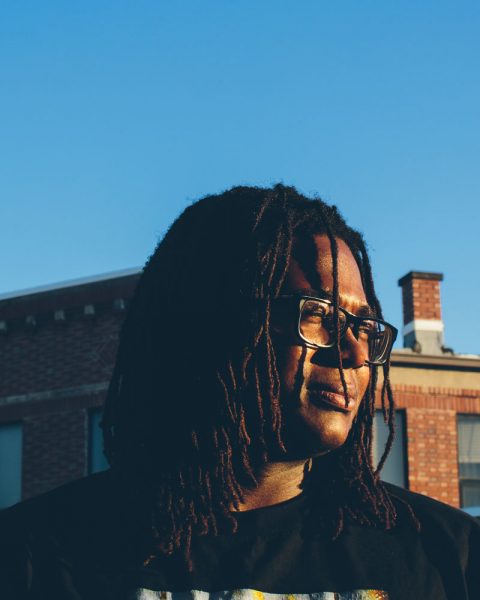 “My parents were into the Doors, Three Dog Night, The Stones, Michael Jackson, Motown, and Pink Floyd, but they were very supportive of me becoming a rapper,” says BJQ over a double of Bulleit Rye at Jake’s in Benson. An endless parade of fans and acquaintances stop to say “hey” to the always-smiling artist as he explains his local introduction to rap: “My first real memory of hip-hop was when I was six or seven. My mom took me to Youngblood’s Barber Shop. Guy named Carl was cutting my hair and I don’t know who was playing, if it was the radio or a CD, but I knew right then what I wanted to be when I grew up.”
“My parents were into the Doors, Three Dog Night, The Stones, Michael Jackson, Motown, and Pink Floyd, but they were very supportive of me becoming a rapper,” says BJQ over a double of Bulleit Rye at Jake’s in Benson. An endless parade of fans and acquaintances stop to say “hey” to the always-smiling artist as he explains his local introduction to rap: “My first real memory of hip-hop was when I was six or seven. My mom took me to Youngblood’s Barber Shop. Guy named Carl was cutting my hair and I don’t know who was playing, if it was the radio or a CD, but I knew right then what I wanted to be when I grew up.”
It seemed a natural fit to the young Elliot. Far from discouraging him, no one was more enthusiastic about this venture than Ma and Pa Elliot, according to BJQ.
“I told my parents I wanted to be a rapper one day, and they were like, ‘Do it! Do it!’ They liked hip-hop and they definitely turned my attention to it.”
Having supportive, white parents was not without its downside. Being different from most kids he knew saddled him with other challenges.
“I was Steve Urkel, man, I was a huge nerd. I was a blerd (black nerd). I am a blerd, at least I think I still am,” says BJQ between remarkably astute observations on cartoons and Star Trek. “I used to act tough because I’d get made fun of for having white parents. The different way I articulated made a difference in the way I speak and think. I wouldn’t have the ideas that I have today if that hadn’t happened.”
Pretending to be Robin Hood at his grandma’s farm in Valley, defending his “blackness” from other kids, absorbing the moral lessons of science fiction and fantasy; these things put BJQ on a fence between worlds, but it made for a great perch.
“It made me see that there were alternatives,” says BJQ. “Growing up in North and South O, you see friends and people you grew up with who make that decision to not see a way out. Maybe they couldn’t see it. I could view my escape. I have the ability to change my perspective.”
Visit soundcloud.com/blackjonnyquest for more information. Encounter
